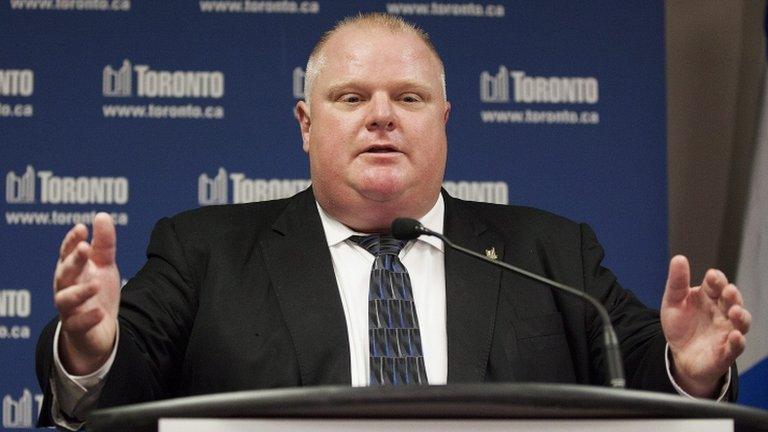Profile: Toronto Mayor Rob Ford
- Published
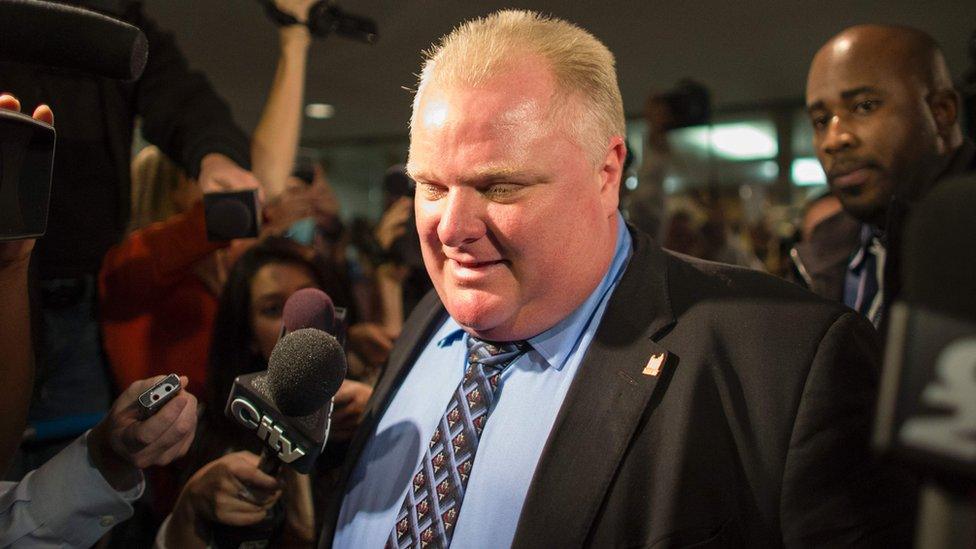
Rob Ford, the former mayor of Toronto, was known for a drug scandal, a series of controversial comments and his fiscal conservatism.
Ford, 46, died after an ongoing fight with a rare and aggressive cancer, which ended his re-election bid in 2014.
In September 2014 , he was diagnosed with an abdominal tumour called a liposarcoma, which doctors described as "fairly aggressive" and required chemotherapy.
He withdrew from the mayoral race, replaced by his brother Doug, but put his name on the ballot for his old constituency on the city council.
Rob Ford was first elected to lead Canada's most populous city in 2010 as an outsider, with strong backing from his suburban neighbourhood.
But by 2013 he faced heavy pressure to resign from both political opposition and former allies on the city council after admitting he smoked crack cocaine while severely inebriated.
Ford had previously refused to resign from the job, mounting a re-election campaign against multiple challengers.
"Our family has been through everything - from murder to drugs to being successful in business," he once told the Toronto Star. "Nobody can tell me a story that can shock."
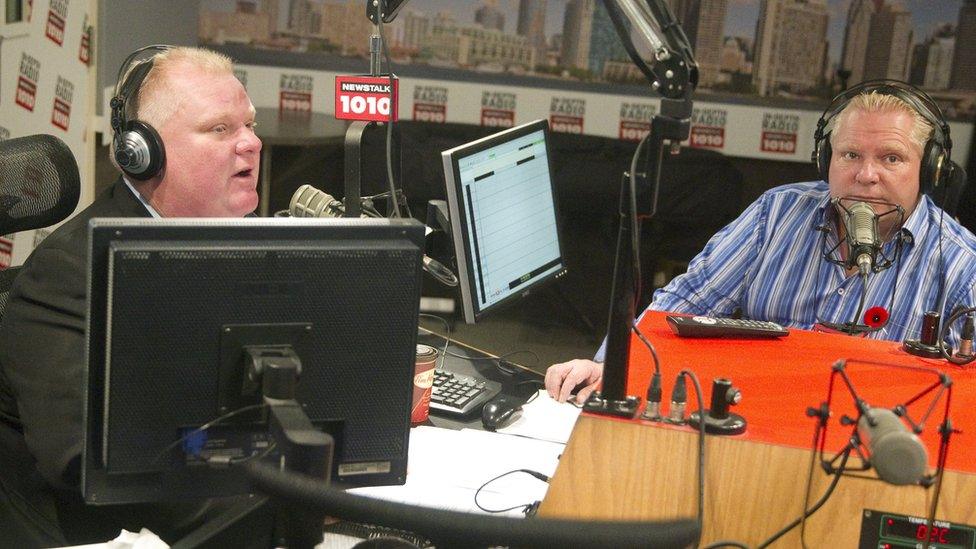
Ford used his talk show to discuss city issues - and to attack critics
Rob Ford was born in May 1969 in Etobicoke, Ontario, now a diverse district in the west of Toronto.
His father, Doug Ford Sr, was a businessman and member of Ontario's provincial parliament.
The elder Mr Ford ran the successful printing firm Deco Labels and Tags. The Ford family still owns the company, and Rob Ford had served in senior management positions there.
He then attended Carleton University but did not graduate, instead returning home to care for his sister, a recovering heroin addict, according to a profile in Toronto Life magazine profile, external. Years later, an ex-boyfriend would shoot his sister in the face in her parents' home.
In 2000, Ford married his long-time girlfriend Renata. They had two young children. Rarely seen in public, she was dubbed the "invisible wife".
Ford was charged with assaulting her in 2008 but the charge was dropped.
Toronto Mayor Rob Ford ordered the press to leave his property
After a previous attempt, Ford was elected to represent Etobicoke in 2000 in the city council. In that role, he gained a reputation for controversial remarks and an aversion to spending city money.
He ran for mayor with a promise to "end the gravy train" at city hall and to partially privatise rubbish collection services after a month-long strike.
In 2010 he was elected mayor with 47% of the vote, largely on the strength of his support in the outlying suburbs. His brother Doug Ford Jr replaced him on the council as representative of Etobicoke.
The rubbish privatisation was deemed a success, and Ford continued to look for ways to trim the city's budget.
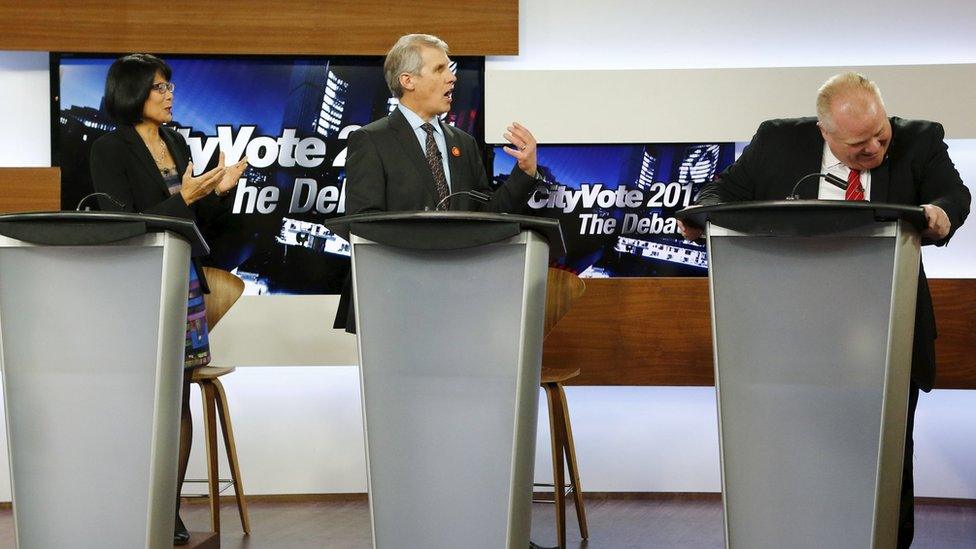
Rob Ford with fellow Toronto mayoral candidates in a March 2014 debate
Later, he became embroiled in a conflict of interest row after he was accused of using the city of Toronto logo and leveraging his status to solicit funds for his football foundation.
The city council tried to sack him, but in January 2013 a Canadian court overturned the removal order.
In March 2013, the Toronto Star reported he had been asked to leave a military ball because its organisers thought he was inappropriately intoxicated. "It's an open secret at city hall that the mayor has battled alcohol abuse," the newspaper said.
The video shows Rob Ford swearing and extremely angry
Then, in May 2013 the Star and US gossip website Gawker reported that their journalists had seen a video apparently showing Ford smoking from a crack cocaine pipe while obviously intoxicated.
The Toronto mayor denied he was a crack user - but never denied using the drug in the past. Months later, police said they had gained possession of the video.
After the revelation, Ford said he had "made mistakes" and said he would curb his drinking. Ultimately, he admitted to smoking crack cocaine, "probably in one of my drunken stupors".
And he dismissed calls to step down: "We must keep Toronto moving forward. I was elected to do a job and that's exactly what I'm going to continue doing."
The same week, another video of Ford became public. The clip showed the Toronto mayor in a foul-mouthed rant during which he vows to rip out a unspecified person's throat.
The context of the clip was not clear, nor was the target of Ford's wrath. He has said he was intoxicated when it was filmed and was "very embarrassed by it".
Doug Ford: "I'll continue to stand by my brother"
After the video was published, Ford's mother and sister told a local television station his behaviour was unacceptable for a mayor, but said he had done good work for the city.
"It isn't like it has affected his work," said Ford's sister, Kathy.
Asked whether she thought her brother was an alcoholic, she responded: "It depends on what you consider an alcoholic."
In April 2014, Ford officially kicked off his re-election campaign. He had four challengers in the 27 October election.
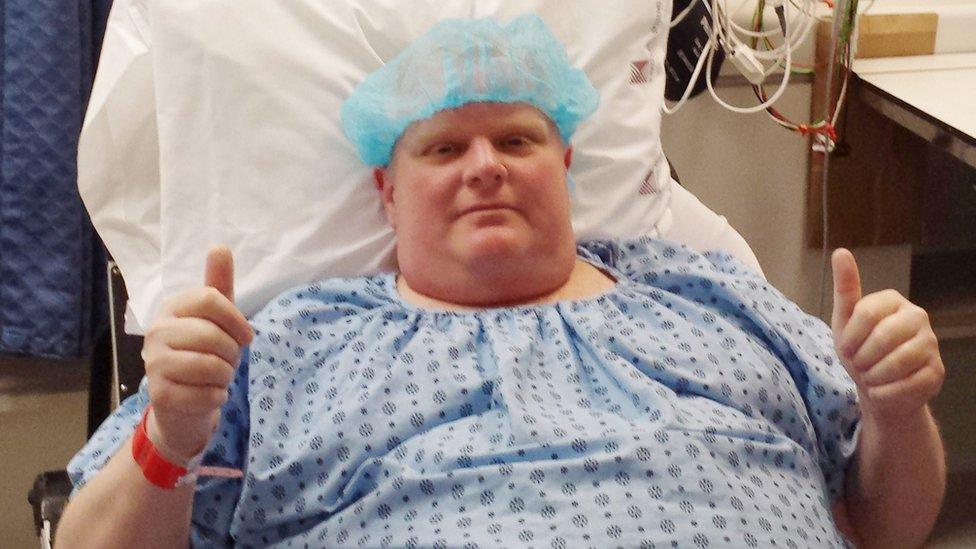
Rob Ford underwent surgery in 2015 to remove a cancerous tumour
But other recordings of Ford in an apparently intoxicated state surfaced, including in a new audio recording of him making abusive comments about Councillor Karen Stintz, who was also running for mayor, and other politicians.
Allegations also surfaced in police documents that Ford threatened a fellow high-school football coach, used racially abusive language, threatened staff, sexually propositioned a female colleague, and snorted cocaine in a restaurant. He denied all of it.
In May, the mayor sought treatment for substance abuse, returning to city hall the following month.
Ford said the experience saved his life and he continued his re-election campaign, appearing in several debates. Polling suggested he was in second place in the five-person election.
But in September 2014, he was admitted to hospital after pain in his abdomen became "unbearable". Several days later, Ford dropped out of the mayoral race, with his brother replacing him on the ballot.
He ran for seat on city council instead - and won - and continued to receive treatment.
Ford underwent surgery in May 2015 to remove a cancerous tumour but doctors found new growths months later. The Toronto Star reported he was in clinical trial to treat his cancer, external at the time of his death.
- Published8 November 2013
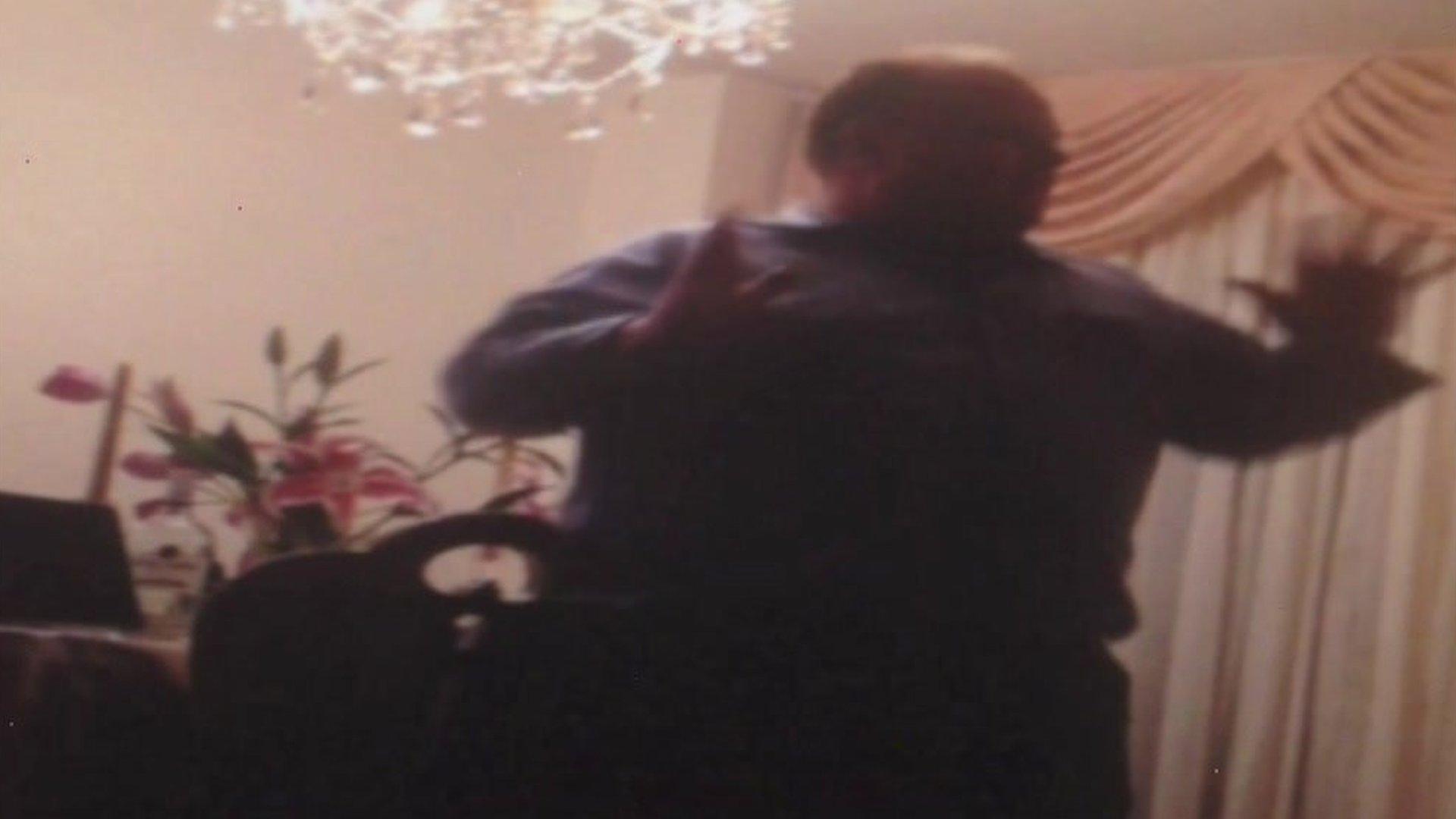
- Published7 November 2013
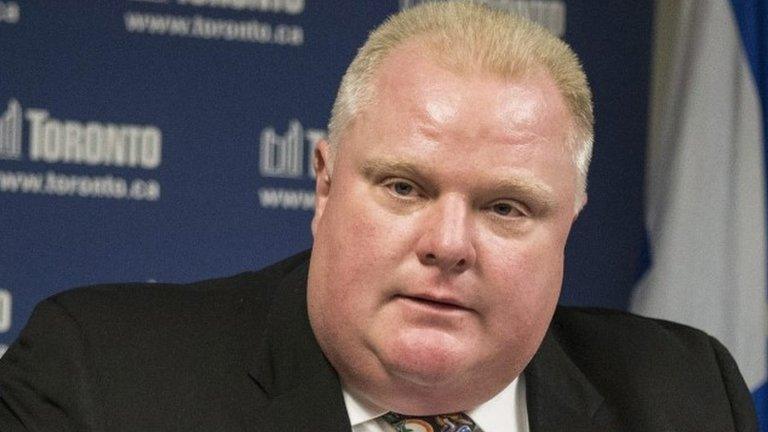
- Published5 November 2013
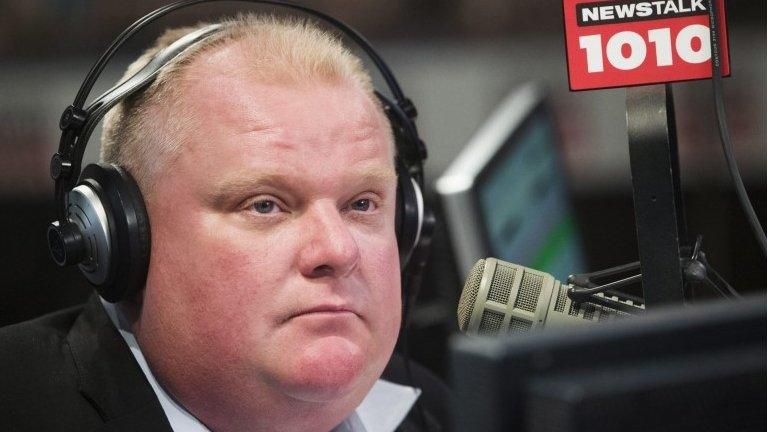
- Published20 June 2013
